If music is a universal language, then why have its institutions historically been run almost entirely by men? Women account for roughly half of the audience for classical music, yet the leadership of orchestras, opera companies, presenters, and choirs has remained lopsidedly male since the birth of European polyphony in the 12th century.
The good news is that in the last quarter-century women have made unprecedented strides, bringing a burst of creative energy to a genre long in need of a good dusting-off.
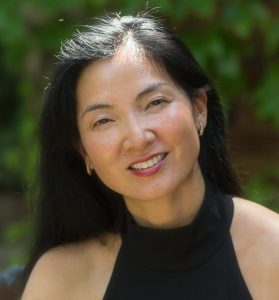
Elizabeth Suh Lane
March is Women’s History Month, and Kansas Citians can feel proud that many of our musical organizations are following progressive trends. The Friends of Chamber Music grew into international powerhouse under female leadership; the Lyric Opera of Kansas City is one of a handful of significant companies led by a woman; a woman has shaped the Midwest Trust Center into a transformative Johnson County experience; and the Kansas City Symphony’s musician roster is currently around 40 percent female.
Moreover, some of the city’s most effective smaller ensembles, such as the all-female Bach Aria Soloists and the Kansas City Baroque Consortium, were founded by gifted women with a clear purpose and a drive to create something unique.
“Once some talented women ‘make it’ in these areas, then it starts to break down those barriers for everyone,” said Elizabeth Suh Lane, a world-renowned violinist who formed Bach Aria Soloists in 2000 and has built it to a major chamber ensemble. “It doesn’t really matter if you’re a man or a woman, it’s just the talent that you’re bringing to the organization.”
Elizabeth began her career with the London Symphony Orchestra, which in the mid-1990s employed only a half-dozen or so women, and moved from there to Chicago and eventually Kansas City, where she created her own musical niche. “There are so many talented female composers today,” she said, mentioning Chen Yi, Susan Kander, and Ingrid Stölzel, all of whom have local ties. “We try to perform some of them every year.”
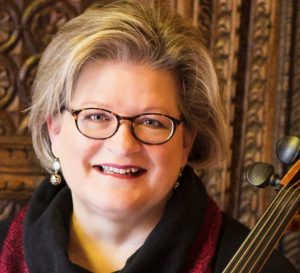
Trilla Ray-Carter
In recent years, orchestras and opera companies have made efforts to address longstanding inequities. “Women make up over half of our audiences,” said Deborah Sandler Kemper, the Lyric Opera’s general director since 2012. “Yet they don’t see their stories onstage, and we need to address this.”
A decade or so ago, when women in opera observed how few of its leaders were female, they began to address the issue. “And the field has been changing rapidly,” Deborah said, pointing to significant recent appointments at Houston Grand Opera (Khori Dastoor), Seattle Opera (Christina Scheppelmann), Virginia Opera (Peggy Dye), Opera San José (Shawna Lucey), and Long Beach Opera (Jennifer Rivera).
“Women are infinitely more prominent in the field today,” she added, thanks partly to OPERA America’s Women’s Opera Network, which creates grants and mentorships for women. As women compose more operas, the repertoire will inevitably begin to shift in focus.
“I am a fan of much of contemporary opera, because it tells stories that feel more current,” Deborah said, pointing to such works as “. . . When there are nine,” a chamber opera celebrating the centenary of women’s suffrage in the United States that the Lyric performed in 2019. “That’s what opera is about. Which is not to say that the ‘canon’ does not address contemporary life. Take Tosca: A woman is being manipulated by a man in power.”
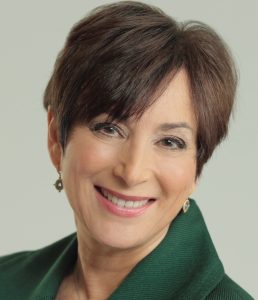
Deborah Sandler Kemper
There’s change in the offing for American orchestras, too, both in repertoire and in leadership. This season and next, the Kansas City Symphony presents an unprecedented number of works by women, including composers such as Florence Price, Anna Clyne, Joan Tower, Lili Boulanger, Jessie Montgomery, Grażyna Bacewicz, Caroline Shaw, and Missy Mazzoli.
Women conductors are also represented in the guest lineup during these two seasons. This June 3rd through the 5th, Gemma New will become the first woman to lead a Classical Series program since Anne Manson, former music director, conducted here in 2004. Gemma and next season’s female guest conductors, Ruth Reinhardt and Valentina Peleggi, join 15 other potential candidates for the post that Michael Stern vacates in spring of 2023.
The new “supply” of women conductors stands in stark contrast to the situation just 15 years ago, when Marin Alsop was appointed music director of the Baltimore Symphony: the first woman to head a major American orchestra, ever. According to Marin, a path-forging Leonard Bernstein protégée, progress remains slow, even as conservatory conducting programs fill with women.
“The thing about conducting is, it’s all body language,” she told The New York Times in 2019, “and our society interprets gesture very differently from men or from women.” A woman must think twice about each movement, “because it’s not just the gesture, it’s how the musicians interpret it.”
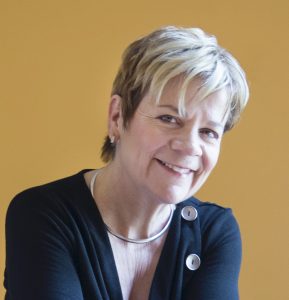
Marin Alsop / Photo by Adriane White
At this point, change in classical music seems inexorable. In 2019, 48 percent of the Juilliard School’s graduating class was female (44 percent at the Curtis Institute of Music). Women are also entering arts administration programs in record numbers. And this fall, Nathalie Stutzmann becomes the second woman to lead a major American orchestra, assuming the music directorship of the Atlanta Symphony.
Repertoire has been slow to change, though, even as scholars continue to uncover top-drawer music by women from all eras. The 12th-century abbess Hildegard of Bingen was one of the most widely known composers of the Medieval period, and, even today, her work remains one of the most frequently performed. Gifted and prominent women composed throughout the Renaissance, as well.
During the Baroque period, “more women were given the opportunity to develop their musical skills and talent,” said Trilla Ray-Carter, who founded Kansas City Baroque Consortium in 2009 and formed it into a non profit in 2016. Women in the Baroque often published music under their husbands’ or brothers’ names, and many scores by nuns in convents are lost, or were preserved only by accident.
Musicologists are still trying to get a better picture of the repertoire, but “there are big questions about how much music was actually written by women,” Trilla said. “So much of it was lost, but if it does still exist it means going into churches and libraries and finding things that are tucked away in back corners.”
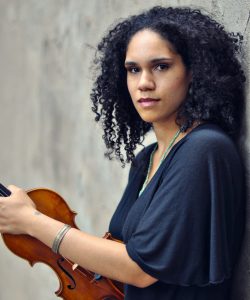
Jessie Montgomery / Photo by Jiyang Chen
Early music groups, at least in North America, are often more likely to be led by women than other kinds of classical ensembles: Boston Early Music Festival has women as both executive and artistic directors, as does the Toronto-based Tafelmusik. Apollo’s Fire garnered international acclaim initially under its founding director, Jeannette Sorrell; the San Francisco-based Philharmonia Baroque was founded by Laurette Goldberg; and for 30 years the all-female Anonymous 4 was one of the world’s most sought-after vocal ensembles.
Locally, Trilla says gender has never played a role in her fundraising efforts, as her support base was always focused on the art form itself. “The people I went to first to help support this dream were people I knew… who have a real interest in early music,” she said. “So they were delighted to see something get planted and hopefully grow.”
As women take more control, the dynamics of performing-arts organizations are shifting toward diversity in all areas. Indeed, efforts to include women are often part of broader initiatives toward equality, which include efforts to advance BIPOC artists and administrators. The new national consciousness of racial and gender inequalities has caused arts groups to examine all aspects of their operations.
“We’re dealing with equity and inclusion in this country in a very deep way,” Deborah said. “Diversity, equity, and inclusion have become very, very important. … And women are part of it.”
And nearly everyone agrees that progress is speeding up noticeably. “We’ve made an enormous amount of progress in the last several years,” Deborah added. “It’s just been so long in coming that it may seem like the needle is not moving as quickly as some people might like.”
—By Paul Horsley
To reach Paul Horsley, performing arts editor; send an email to paul@kcindependent.com or find him on Facebook (paul.horsley.501) or Twitter/Instagram (@phorsleycritic).